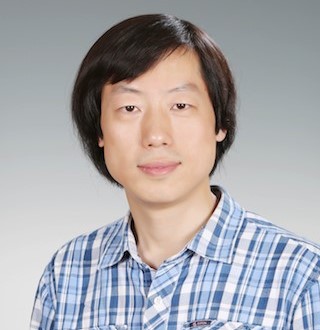使用账号密码登录
Welcome Back
使用表单注册
Welcome Back
Brief Introduction
Dr. Fuchou Tang is Professor at BIOPIC, College of Life Sciences, Peking University. He is also Associate Director of Beijing Advanced Innovation Center for Genomics (ICG). He set up his own lab as a principal investigator at Peking University in 2010. Dr. Fuchou Tang’s lab focuses on the epigenetic regulation of gene expression network during human early embryonic development and germline development (Cell, 2013; Nature, 2014; Cell Stem Cell, 2014; Cell, 2015; Science, 2015; Nature, 2016; Cell Stem Cell, 2017a, 2017b, 2017c; Nature Genetics, 2018; Nature, 2018; Nature Cell Biology, 2018a, 2018b; Cell Stem Cell, 2018). Recently, his lab also worked on cellular heterogeneity of colorectal cancer (Science, 2018). His lab pioneered the single cell sequencing field and has systematically developed a serial of single cell functional genomic sequencing technologies [scRRBS (Genome Research, 2013); scMicrofluidic-seq (PNAS, 2014); SUPER-seq (Genome Biology, 2015); scTrio-seq (Cell Research, 2016); scCLEVER-seq (Cell Stem Cell, 2017b); scCOOL-seq (Cell Research, 2017); MR-seq (Science Bulletin, 2017)]. His work has been cited for more than 8,000 times. Some of his work has been selected as Top 10 scientific and technological progresses of China in the years of 2014 and 2015. He is an editorial board member of Genome Biology, and Open Biology. He has been invited to give presentations at AGBT (Advances in Genome Biology & Technology), ISSCR (International Society for Stem Cell Research), ICHG (International Congress of Human Genetics), Gordon Conference, HCA (Human Cell Atlas), etc. He organized the Cold Spring Harbor Asia conference of Frontiers in Single Cell Genomics in 2016 and 2018.
Reconstituting the transcriptome and DNA methylome landscapes of human implantation
Implantation is a milestone event during mammalian embryogenesis. Implantation failure is a considerable cause of early pregnancy loss in humans. Owing to the difficulty of obtaining human embryos early after implantation in vivo, it remains unclear how the gene regulatory network and epigenetic mechanisms control the implantation process. By combining an in vitro culture system for the development human embryos after implantation and single-cell multi-omics sequencing technologies, more than 8,000 individual cells from 65 human peri-implantation embryos were systematically analyzed. Unsupervised dimensionality reduction and clustering algorithms of the transcriptome data show stepwise implantation routes for the epiblast, primitive endoderm and trophectoderm lineages, suggesting robust preparation for the proper establishment of a mother-to-offspring connection during implantation. Female embryos showed initiation of random X chromosome inactivation based on analysis of parental allele-specific expression of X chromosome-linked genes during implantation. Notably, using single-cell triple omics sequencing analysis, the re-methylation of the genome in cells from the primitive endoderm lineage was shown to be much slower than in cells of both epiblast and trophectoderm lineages during the implantation process, which indicates that there are distinct re-establishment features in the DNA methylome of the epiblast and primitive endoderm even though both lineages are derived from the inner cell mass. Collectively, our work provides insights into the complex molecular mechanisms that regulate the implantation of human embryos, and helps to advance future efforts to understanding early embryonic development and reproductive medicine.

